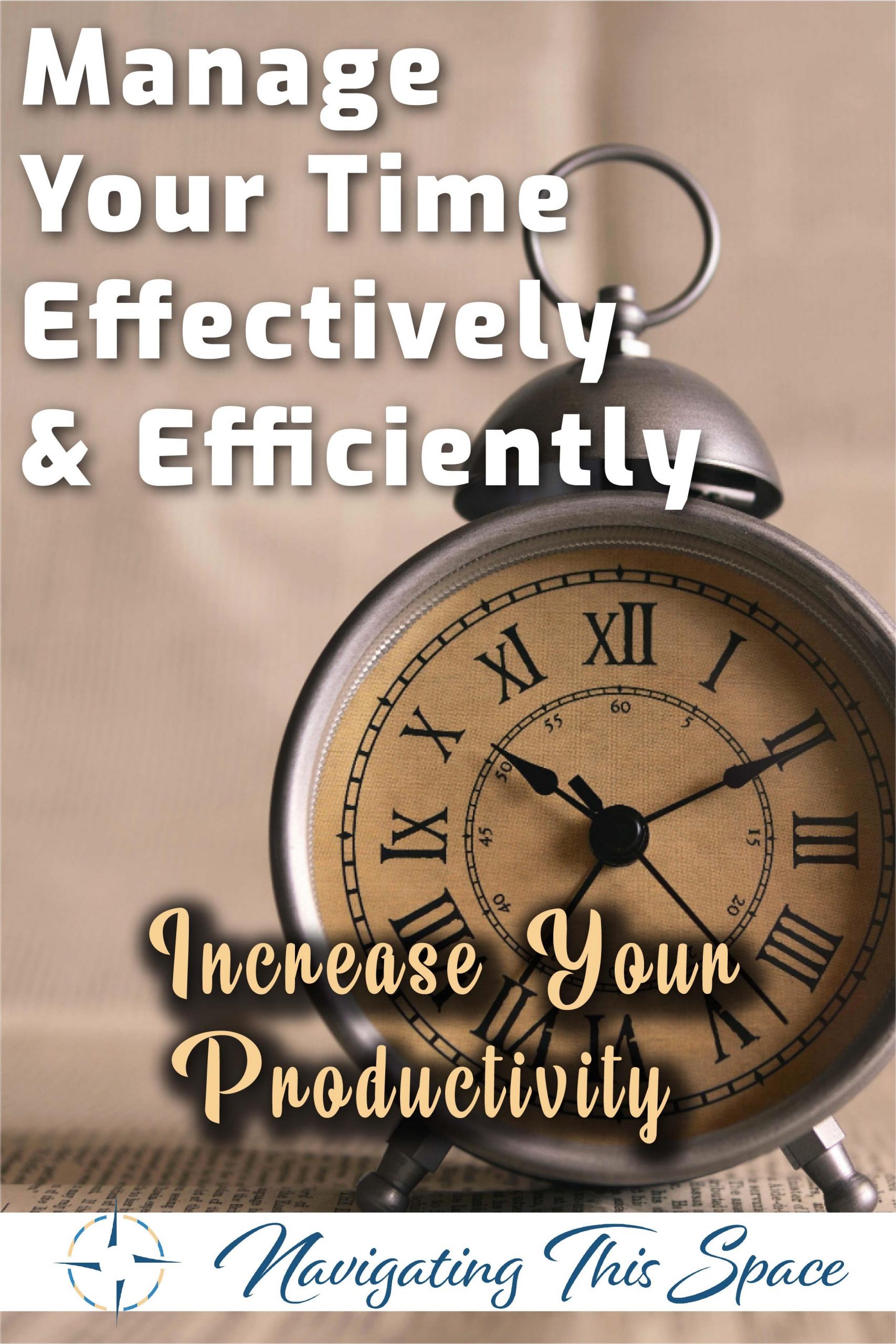I spent most of this morning meticulously organizing files and photos on my laptop. I do this every time I import new items into my external drive. Years ago, after searching for hours to find a file that I needed, I knew I had to change the way I stored things on my computer. That lesson eventually spilled over into the real world. I despise looking for things—it raises my body temperature and overwhelms me. So the only effective way to avoid the whole ordeal is to keep things organized and in their own place.
This little organizing trick that I picked up over the years has helped me eliminate the stress and wasted moments of searching for things I needed. One switch allowed me to start doing the things on my to-do list immediately, thus maximizing my time.
Over the years, I’ve developed a technique that helps me to keep track of my time and use it efficiently to achieve my goals and dreams. This method keeps expanding as I outgrow my comfort zones, but, for the most part, it’s actually very simple to do.
I’ll share this technique with you in a bit, but first, let’s talk about time management and why you should be using your time effectively.
- What Is the Main Purpose of Time Management?
- What Is Effective Time Management?
- How Do You Use Time Management in Everyday Life?
- Why Is It Important to Be Organized When It Comes to Time Management?
- Here Are Three Time Management Techniques That Will Change Your Life
What Is the Main Purpose of Time Management?
Time management, simply put, is when you take control of your time to accomplish your daily, weekly, monthly, and yearly goals. Maximizing your productivity to achieve your goals and dreams is the most important purpose of time management. If you want to accomplish anything in life, you have to create a plan and use your time effectively to bring that goal to life.
Time management also eliminates any chances of you overwhelming yourself, which will inevitably lead to burnout. Planning effectively leads to accomplishing a bulk-load of your tasks and goals in a relatively short span of time. You see, planning and time management work hand in hand. Without a plan, you won’t know how to manage your time efficiently.
“It takes as much energy to wish as it does to plan.” – Eleanor Roosevelt
What Is Effective Time Management?
Effective time management is using your time wisely to eliminate procrastination which aids in conquering all your untouched tasks. When you procrastinate, you’re setting yourself up for unnecessary stress, and this stress halts your progress. Using your time effectively will increase productivity, which will reduce stress caused by procrastination. It’s the ultimate win-win situation.
How Do You Use Time Management in Everyday Life?
Plan, plan, and plan some more.
Plan exactly what you need to do for the week, which will guide you into what must be done daily. I advise you to plan as far as three months ahead to truly see the big picture. You’ll be positively surprised by how much you can achieve when you’ve laid out the plans.
Make schedules and deadlines―then stick to them
A plan without a schedule is just a wish. Solidify your plan by creating a schedule for it, with deadlines. Force yourself to be disciplined enough to stick to your schedule. As humans, we tend to underestimate how many goals we can achieve in a three-month time span, so I challenge you to challenge yourself. You won’t know your full potential unless you push your limits.
“Failing to plan is planning to fail” – Alan Lakein
Why Is It Important to Be Organized When It Comes to Time Management?
An important tip to pushing your boundaries and dominating your goals is to make sure that you are organized every step of the way. Less confusion leads to more completed tasks. The more tasks you complete, the closer you are to achieving your goal.
The more organized you are, the less chances are that important things will be forgotten. We’ve all been there (more times than we’d like to admit!) where important things fall through the cracks because we’re busy being busy. The only way to eliminate this mishap is to be meticulously organized.
If everything is accounted for, nothing will be missed. Apply this mentality to your life outside of goal chasing and work as well. For example, If you spend hours searching for a book that you need because you didn’t replace it in the specified spot, then you’re wasting precious time that could be used to do something more productive.
“For every minute spent in organizing, an hour is earned,” – Benjamin Franklin.
Here Are Three Time Management Techniques That Will Change Your Life
1. Make a to-do list and use it
These things are magical when it comes to keeping you on track and making productive progress. Do not underestimate the power of writing things down— it’s a crucial step on your journey to achieving all your goals and dreams.
2. Use the Ivy Lee Method to plan your day from the night before
The Ivy Lee method is over 100 years old, dating as far back as 1918. It’s as effective in today’s world as it was back when Charles M. Schwab created it. Here’s how to implement it:
- At the end of your workday, whether it’s work for others or work for yourself, write down the six most important things that you need to accomplish tomorrow. Do not go over six.
- Organize those six items by importance—with the first task being the most important and the least important being the sixth.
- When tomorrow comes and it’s time to work again, start with the first item on your list and do not move to the next task until the first one is completed. In other words: No Multitasking.
- If the workday ends and you haven’t completed everything on the list, add the unfinished items to the next day’s to-do list of six.
- Rinse and Repeat
And lastly…
3. Use the Pomodoro Technique to add breaks to your schedule
Created by Francesco Cirillo in the 1980s, the Pomodoro technique is quite simple to implement into your everyday life. It utilizes a timer to add mandatory breaks while you work. The benefit of using this method is that you’ll be able to get twenty-five solid minutes of deep uninterrupted work completed with a reward of a five-minute break at the end. In our regularly scheduled lives, we are constantly interrupted by phone calls, texts, social media, random notifications, and a never-ending list of distractions. This method will force you to quiet the noise and focus entirely on the task at hand. Here’s how it works;
- Choose the task on your to-do list that you’ve identified by using the Ivy Lee Method
- Set a timer for twenty-five minutes
- Work on that task for the entire twenty-five minutes without interruptions.
- When the timer goes off, place a checkmark on your to-do list to indicate the completion of your uninterrupted twenty-five minutes of work. (This will help you to keep track of your intervals, more on that in a second.)
- Take a five minutes break to breathe, stretch, drink some water, coffee or tea, and relax.
- After the five minutes is up, reset and start your next twenty-five minutes block of work.
- After you’ve successfully completed four, twenty-five minutes of work blocks ( which you can track using your checkmarks), take a twenty to thirty minutes break before you start again. (This will give your brain time to relax and strategize new plans to help you complete your task successfully.
Implementing these simple activities in your personal development journey will have great effects on your short-term and long-term goals. Plan effectively and execute flawlessly.










I’d never heard of the Ivy Lee Method before! Thanks for explaining it 🙂
I’m happy you now know about it, it’s insanely beneficial when you incorporate it into your life. Thanks for reading Scout!
Time management is an important skill to learn, and these are great tips! Love the way you explain time management before going into different methods. I look forward to reading more articles!